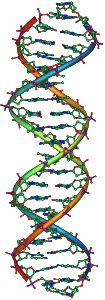 When an earthquake appears on the scene here in California, two questions immediately come to the surface (sorry): how strong is it, and where is the epicenter? No one asks where the center of the quake is, probably because no one really knows where in the earth the quake actually occurred; they only know where on earth it appears, which for most earthlings is the only thing they really care about.
When an earthquake appears on the scene here in California, two questions immediately come to the surface (sorry): how strong is it, and where is the epicenter? No one asks where the center of the quake is, probably because no one really knows where in the earth the quake actually occurred; they only know where on earth it appears, which for most earthlings is the only thing they really care about.
In the early days of my work with children with autism, I tried hard to stay on top of the biological research, because it is there that I held out hope that we would discover the root causes and therefore find better ways of treatment. I believed the Holy Grail was in the area of genetics, because the research we did have all seemed to point in that direction. In fact, the research on the genetic underpinnings of autism exploded to the point where, even with diligent assistance, I couldn’t keep up. After a few years and several reams of printer paper, I gave up and instead vowed to read others’ research reviews and attend workshops on the subject.
It turns out that the focus on genetics may be a bit like the focus on the center of earthquakes. It may in fact be where the real action is, but it is not so easy to find. The decoding of the human genome held all sorts of promises, but has had very little real impact on our ability to understand disease. That is partly due to the complexity of the problem. (Google has recently agreed to store the genomes of 10,000 individuals with autism, which should make it easier to investigate what anomalies might serve as clues to solving the mystery.)
But it has turned out that the kind of genetics I learned about in school, which had to do with chromosomes, DNA and heritability, has changed dramatically. The thought was that we could find the cause of a disease in mutations in one or a few genes, each gene having a significant impact. Current belief, however, is that most chronic disorders are caused by the interaction of hundreds of low impact genes, and that even single-gene mutation disorders are effected by many heretofore unknown networks of influence.
Epigenetics is the term given to alterations in how genes are expressed, and even whether or not a gene is “turned on and off.” The word epigenetics itself is broad, having to do with a vast number of ways the same genetic code may end up generating different proteins, which may eventually manifest in an illness.
DNA that does not code for protein has been called “junk DNA” even by those scientists who eventually decoded the human genome. Now, as it happens, that DNA that resides among the DNA sequences that have been identified in protein-making, has been more elegantly referred to as “non-coding DNA,” and it is this DNA that some believe is responsible for how and whether coding DNA actually gets expressed.
There is budding research to support that such things as prenatal stress, infection during pregnancy, exposure to toxic chemicals, nutritional factors, diet, allergens, and many other environmental factors alter the non-coding DNA, would then impact the expression of genes at various points in development.
While the center of earthquakes holds little interest or relevance to those of us who live on the earth and not in it, geologists still need to study it in order to better understand how earthquakes are going to manifest on the surface, the epicenter. But in the world of autism, some believe that too much emphasis is placed on studying the genetic core, because doing so has not gotten us much in the way of practical results. These scientists believe that we may learn more about how chronic illnesses such as autism arise by paying more attention to the relatively new science of epigenetics.

Interesting, and I agree mostly, then while processing the information it dawned on me that this sounds a bit like the old mother blaming of Bruno Bettleheim? Was it him?
Bettelheim blamed autism on “refrigerator mothers,” positing that autism resulted from a cold, distant, uncaring mother. Those of us who work in the field know that could not be farther from the truth. The “epigenetic” hypothesis has to do with biochemical factors that alter the expression of genes; it really has nothing to do with the personality of mothers. I really hope I didn’t lead anyone to think that somehow I could be “blaming” mothers; that is certainly not my view or intention– quite the opposite.
Not blaming mothers but maybe blaming environmental factors.